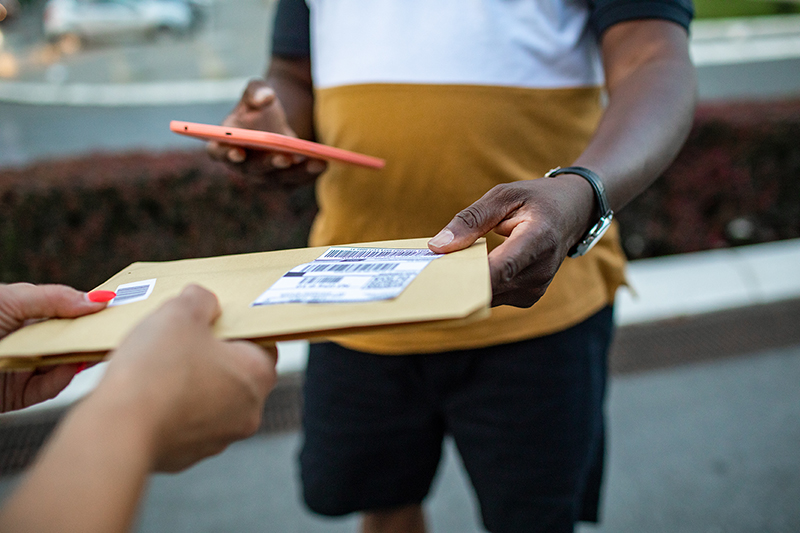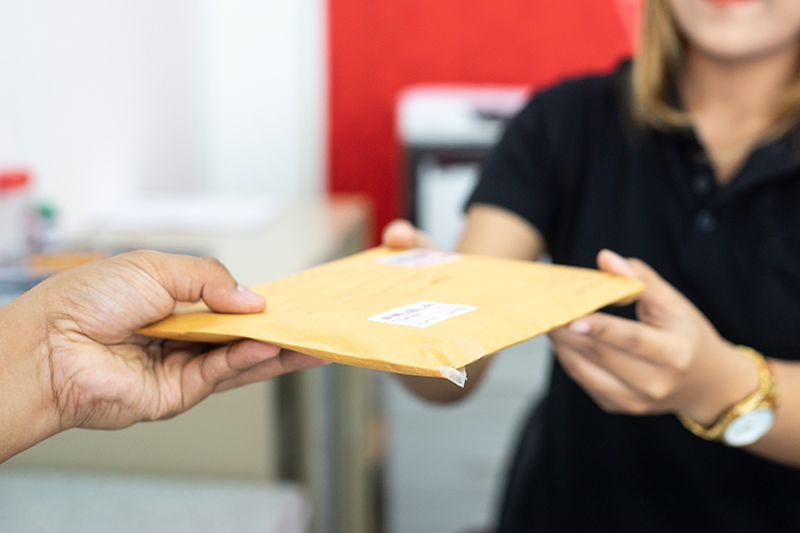Court documents starting a new case or re-opening a case
Service of process is the way in which the other person in a court case receives initial court papers and notice about the case. Papers you file with the court to start a case name a person or business you are suing, called the Defendant. After you file your papers, the court will issue a summons. You must serve the defendant with the summons and a copy of the papers you filed.
The court documents must be given to the other person or business in a particular way. You cannot deliver the court documents to them yourself. You may arrange for someone over the age of 18 and not a party to the case to deliver the documents. That person may deliver the documents in person or by certified restricted mail. Sending the documents through the mail requires a return receipt with a signature. You will need to save that receipt.
The party you are serving must receive the documents personally. They must sign for the mail or receive the documents in person. There is one exception. The person delivering the documents in person may leave the papers with an adult resident of the other party’s home. The person who receives the papers must live with the other party.
The person serving the papers can be someone you hire, a friend or relative not involved in the case, or the sheriff. The sheriff requires a fee to serve court documents.
Keep in mind there are a few other circumstances when you must formally serve the other person. For example, you must provide service of process when you file to re-open a closed case.
Read the court rules on service of process for the District Court and circuit courts in Maryland.
Proof of Service
The court requires proof of service. The person who served the documents should fill out an affidavit of service. An affidavit is a sworn statement. They should attach the return receipt with the other party’s signature if served by mail. The affidavit should state:
- The name of the person served.
- The date of service.
- The location of service.
- The method of service (mail or hand delivery).
- A description of the person served, if served in person.
- How the person serving the papers knows the person served is of age.
- Name, address, and phone number of the person serving the papers.
The complete affidavit of service should be filed with the court. If the sheriff serves your court papers, the sheriff will also return the proof of service to the court.
The Maryland courts provides forms for proof of service in family law cases. View the forms Affidavit of Service for Mail in Family Law cases, Form CC-DR-056 and Affidavit of Service for Hand Delivery in Family Law cases, Form CC-DR-055. For District Court cases, view the form Request Service and Proof of Service, Form DC-CV-002.
Other Court Documents
Once you have served the defendant with the summons and initial court papers, you can use a simpler process for service. You must continue to send the other side a copy of anything you file with the court, but you can deliver the papers yourself. You can send the papers first class mail or hand deliver them.
Each time you file a new document with the court, file a certificate of service telling the court how you provided a copy to the other side. Some court forms include a certificate of service. You can also use form CC-DR-058 for filings in circuit court, and form CC-DC-067 for filings in both circuit court and District Court.
Read the court rules on service of court documents after the case has started.
For certain types of filings, you may need to fulfill additional service requirements even if not re-opening or starting a court case. If you have questions about how to serve your document, contact a lawyer. You can talk with a lawyer for free at the Maryland Court Help Center. Visit mdcourts.gov/helpcenter or call 410-260-1392.




